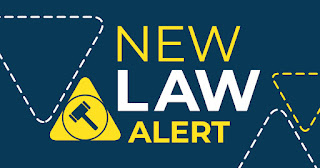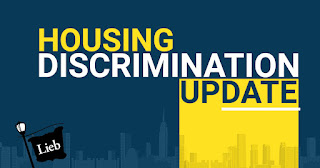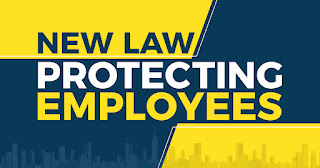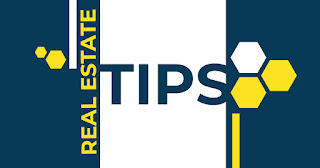On March 16, 2022, the NYS Division of Human Rights published Revised Rule Making, HRT-15-21-00005-RP (proposed 19 NYCRR 466.15), with respect to the notice that tenants must receive, which explains their rights to receive reasonable modifications and accommodations in housing.
The proposed regulation provides that:
- Real Estate Brokers are charged with making this disclosure "[u]pon the first substantive contact."
- Housing providers are charged with providing this disclosure to current and new tenants.
- Housing providers must post the notice on all of their websites.
Here is what the notice should state:
NOTICE DISCLOSING TENANTS’ RIGHTS TO REASONABLE ACCOMMODATIONS FOR PERSONS WITH DISABILITIES
Reasonable Accommodations
The New York State Human Rights Law requires housing providers to
make reasonable accommodations or modifications to a building or living
space to meet the needs of people with disabilities.
For example, if you
have a physical, mental, or medical impairment, you can ask your housing
provider to make the common areas of your building accessible, or to
change certain policies to meet your needs.
To request a reasonable accommodation, you should contact your property manager by calling —or —, or by e-mailing —
*
. You will need to
inform your housing provider that you have a disability or health problem that interferes with your use of housing, and that your request for accommodation may be necessary to provide you equal access and opportunity
to use and enjoy your housing or the amenities and services normally offered by your housing provider.
A housing provider may request medical
information, when necessary to support that there is a covered disability
and that the need for the accommodation is disability related.
If you believe that you have been denied a reasonable accommodation
for your disability, or that you were denied housing or retaliated against
because you requested a reasonable accommodation, you can file a complaint with the New York State Division of Human Rights as described at
the end of this notice.
Specifically, if you have a physical, mental, or medical impairment, you
can request:
- Permission to change the interior of your housing unit to make it accessible (however, you are required to pay for these modifications, and in the
case of a rental your housing provider may require that you restore the
unit to its original condition when you move out);
- Changes to your housing provider’s rules, policies, practices, or services;
- Changes to common areas of the building so you have an equal opportunity to use the building. The New York State Human Rights Law
requires housing providers to pay for reasonable modifications to common
use areas.
Examples of reasonable modifications and accommodations that may
be requested under the New York State Human Rights Law include:
- If you have a mobility impairment, your housing provider may be
required to provide you with a ramp or other reasonable means to permit
you to enter and exit the building.
- If your healthcare provider provides documentation that having an
animal will assist with your disability, you should be permitted to have the
animal in your home despite a “no pet” rule.
- If you need grab bars in your bathroom, you can request permission to
install them at your own expense.
- If your housing was built for first occupancy after March 13, 1991 and the walls need to be reinforced for grab
bars, your housing provider must pay for that to be done.
- If you have an impairment that requires a parking space close to your
unit, you can request your housing provider to provide you with that parking space, or place you at the top of a waiting list if no adjacent spot is
available.
- If you have a visual impairment and require printed notices in an
alternative format such as large print font, or need notices to be made
available to you electronically, you can request that accommodation from
your landlord.
Required Accessibility Standards
All buildings constructed for use after March 13, 1991, are required to
meet the following standards:
- Public and common areas must be readily accessible to and usable by
persons with disabilities;
- All doors must be sufficiently wide to allow passage by persons in
wheelchairs; and
- All multi-family buildings must contain accessible passageways,
fixtures, outlets, thermostats, bathrooms, and kitchens.
If you believe that your building does not meet the required accessibility standards, you can file a complaint with the New York State Division of
Human Rights.
How to File a Complaint
A complaint must be filed with the Division within one year of the alleged discriminatory act. You can find more information on your rights,
and on the procedures for filing a complaint, by going to www.dhr.ny.gov,
or by calling 1-888-392-3644 with questions about your rights. You can
obtain a complaint form on the website, or one can be e-mailed or mailed
to you. You can also call or e-mail a Division regional office. The regional
offices are listed on the website.
The public can comment on this Revised Rule Making until April 30, 2022 by email to Caroline.Downey@dhr.ny.gov with subject of I.D. No. HRT-15-21-00005-RP
Of note, this Proposed Rule was already revised based on prior public comment. Based on that prior comments, the Revised Rule now:
- Includes a posting requirement;
- Language change from "doctor" to "healthcare provider" with respect to proving disabilities;
- Language change from "show" a disability to "inform" of a disability;
- The regulation also now explains the statute of limitations of 3 years to file a complaint in court;
- Adding that the failure of a housing provider to respond to a reasonable accommodation request may also be considered a denial of a reasonable accommodation;
- Clarifying when a provider may reasonably request particular documentation about a disability or need for an accommodation; and
- That the notice requires owners and landlords, not real estate agents, to provide contact information for property managers in the notice.
The response to those comments also acknowledges that there is no express enforcement mechanism for failure to comply with the notice requirement besides from the fact, that we surmise, it will be relevant in a failure-to-accommodate lawsuit and under license law for licensed professionals.
Finally, the Division of Human Rights declined to include advice about the availability of attorneys' fees for plaintiffs in discrimination lawsuits in response to comment. We strenuously disagree with this decision because this lack of disclosure will demotivate victims from seeking the professional help that they desperately need and we hope that you, the public, will comment, again, to remind the Division of this important fact.









